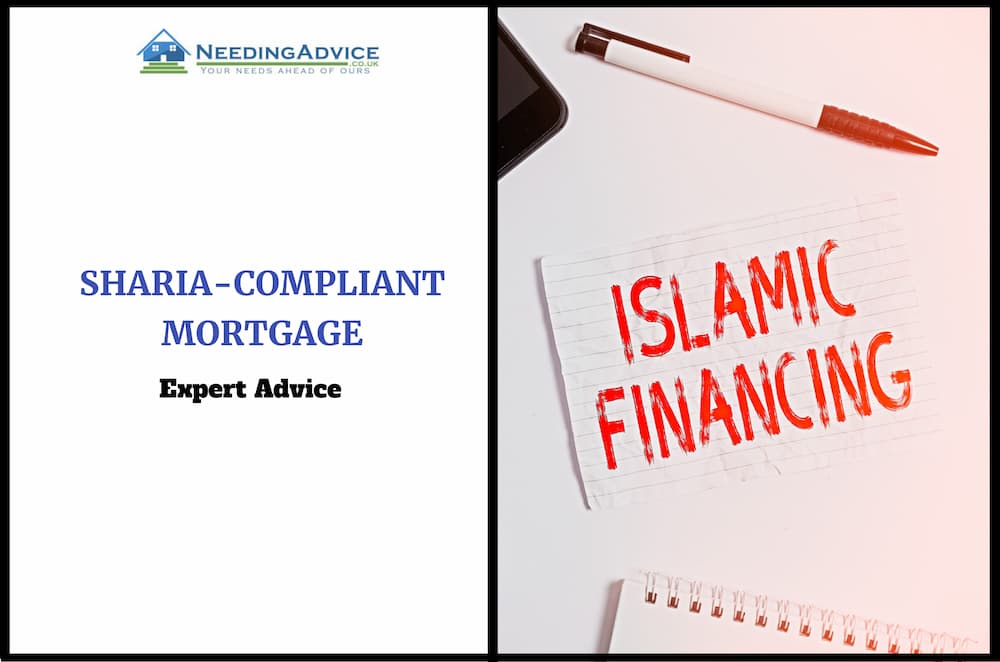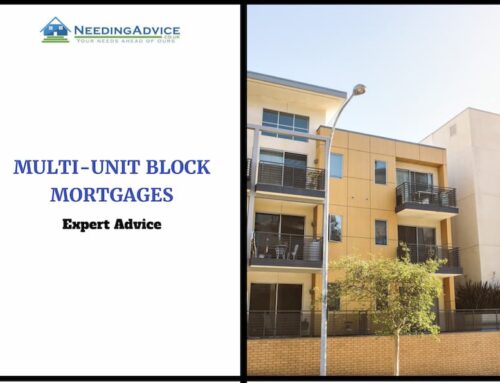Imagine a world where homeownership is not only a dream but a reality for everyone, regardless of their religious beliefs. In many Muslim communities, this dream has become a reality with the advent of Sharia Mortgages. Sharia Mortgages, also known as Islamic Mortgages, are financial products that comply with Islamic law and provide Muslims with the opportunity to purchase their own homes without compromising their religious values.
Sharia is term started centuries ago to refer to Islamic Law. According to this law, it is forbidden for individuals or institutions to make money from charging interest on loans. This has caused problems for many Muslims who want to obtain a mortgage in order to purchase a home, as most mortgages require the borrower to pay interest over time.
Fortunately, a growing number of banks and other financial institutions have begun offering Sharia-compl iant mortgages to meet the needs of this market segment. These mortgages are structured differently than traditional mortgages, and often involve an arrangement in which the bank enters into a partnership with the borrower to purchase and own a home together. The bank then leases the home back to the borrower, and collects rent from them each month instead of interest on the loan. This type of arrangement is allowed under Sharia law, as long as all parties involved understand the terms of the agreement before it is entered into.
Islamic or sharia mortgages can be a great option for Muslims looking to purchase a home, but it’s important to remember that they can still be expensive and complex. It’s always important to do your research and talk to an experienced financial adviser before making any major financial decisions.
There are three main types of Sharia-compliant mortgages on the market Ijara, Murabaha and Diminishing Musharaka. These are offered as an alternative to traditional mortgage loans as they are ways of purchasing a property that don’t involve paying interest which is forbidden under Sharia law.
Post Topics
Types of Sharia-compliant mortgages
How to compare Sharia mortgages?
Why choose a Sharia mortgage?
Sharia mortgages can provide a greater sense of security for those who are committed to following Sharia law. As the borrower and lender enter into a partnership, it is much more likely that the debt will be paid off in full as both parties have an equal interest in seeing this happen. This has the added advantage of helping to improve credit scores over time, as repayment history is recorded and reported.
Muslims may choose a Sharia mortgage as under the Islamic law of Shariah, charging and paying interest is not permitted. The act of making a profit from money by charging interest is seen as an unfair practice. Non-Muslims may wish to use Sharia mortgages if they are looking for an ethical way to purchase a home.
Types of Sharia-compliant mortgages
Ijara
Ijara home purchase plan is a leasing type of agreement whereby the bank purchases your selected property, retains ownership, and the customer makes monthly payments comprising of rent and capital repayment for a fixed term and at an agreed monthly amount.
Until the lender’s stake in the property is bought out at the end of the agreed term, the customer’s share of the property remains constant throughout.
Early repayment is an available option, and at the end of this lease arrangement, the property is transferred to the customer’s ownership. This lease-to-own method complies with Sharia principles, as rent is seen as a fair exchange for using property, and the rent received is how the bank takes it’s profit. This home financing method could be more expensive in comparison to traditional mortgages, which means monthly payments will tend to be higher.
Murabaha
Under Murabaha’s home financing plan, the lender will purchase the property on the customer’s behalf and immediately sell back the property to the customer at a higher price point from which you make an initial lump sum payment followed by monthly payments to the bank until the end of the repayment term. Right to BuyThe right of council tenants to purchase their council. does not qualify under this arrangement, and it is much less popular compared to the Ijara method as the Murabaha arrangement could work out more expensive overall and less flexibility provided to the customer in terms of early repayments.
Diminishing Musharaka
Another type of Sharia mortgage is called Musharaka, which is a co-ownership agreement between the customer and the bank where they buy the property together. The customer’s ownership grows over time whilst the bank’s share shrinks as the customer makes monthly repayments consisting of part capital and part rent until, eventually, the customer owns the bank’s share of the property. The more of a customer’s stake in the property grows, the less of a share is owned by the bank, and this reduces the rent payment for using the bank’s share of the property.
How to compare Sharia mortgages?
For a standard traditional mortgage, borrowers would usually compare interest rates to find the lender with the best deal. Since there are no interest rates to compare when using a Sharia mortgage, you should consider other factors such as how much it would cost you to take out the financing, how much rent the lender charges or if there are any fees. You should assess the flexibility of the product, such as you are able to make lump sum payments to bring the loan amount down or are able to rent out the property should your personal circumstances change.
What are the risks associated with such mortgages?
Here are some of the risks associated with Sharia mortgages in the UK:
- You will still need to cover the costs of insurance, general maintenance, and conveyancing and stamp dutyA tax paid by the buyer when purchasing a property. on the initial purchase. These costs can be significant, and they are not included in the monthly rent payments that you will make to your lender.
- Many Islamic and halal mortgage providers will use LIBOR-pegged values to set your rent, rather than using average levels in your local area as a guide. This means that your rent payments could fluctuate depending on the value of LIBOR, which is a benchmark interest rate. If LIBOR rises, your rent payments will also rise.
- If you fall behind on your rent payments, your lender may repossess your home. This is the same as with a conventional mortgage.
- Make sure you understand the terms and conditions of the mortgage. Sharia mortgages can be complex, so it is important to read the fine print and make sure you understand how the mortgage works before you sign anything.
- Compare different lenders and products. There are a number of different Sharia mortgage providers in the UK, so it is important to compare their products and rates before you choose one.
- Get independent advice. It is always a good idea to get independent financial advice before taking out a mortgage, whether it is a Sharia mortgage or a conventional mortgage.
Next steps
There are alternative arrangements available on the market for Muslims seeking a Sharia-compliant way of purchasing a home, but only select lenders specialise in offering Sharia-compliant mortgages. By talking to a mortgage advisor, they will be able to find you a lender and product most appropriate for your needs and circumstances from the whole of the market and help you with your mortgage application. Get in touch with us today for professional advice.
FAQs
What is an Islamic mortgageA mortgage that complies with Islamic law.?
An Islamic mortgage is a type of mortgage that complies with Sharia law. Sharia law forbids Muslims from paying or receiving interest, so Islamic mortgages are structured without interest. There are a number of different types of Islamic mortgages, but they all work on the principle of shared ownershipA scheme where a borrower purchases a share of a property an....
How does an Islamic mortgage work?
The most common type of Islamic mortgage is called a home purchase plan. Under a home purchase plan, the lender buys the property on behalf of the borrower and then rents it to them. The borrower makes monthly rental payments to the lender, and over time, they build up equityThe difference between the value of the property and the amo... in the property. Once the borrower has paid off enough of the purchase price, they can transfer ownership of the property to themselves.
Another type of Islamic mortgage is called a diminishing musharaka. Under a diminishing musharaka, the lender and borrower purchase the property together in a co-ownership agreement. The borrower makes monthly payments to the lender to buy out their share of the property. Over time, the borrower becomes the sole owner of the property.
What are the benefits of an Islamic mortgage?
There are a number of benefits to Islamic mortgages. For one, they allow Muslims to buy a home without having to pay interest. This can be a major benefit for Muslims who have religious objections to interest. Additionally, Islamic mortgages can be a good option for borrowers who have difficulty qualifying for a conventional mortgage.
What are the drawbacks of an Islamic mortgage?
One of the main drawbacks of Islamic mortgages is that they can be more expensive than conventional mortgages. This is because Islamic mortgages are typically structured as purchase plans or diminishing musharakas, which can involve additional costs, such as rent payments or co-ownership agreements. Additionally, Islamic mortgages may not be as widely available as conventional mortgages.
Who is eligible for an Islamic mortgage?
To be eligible for an Islamic mortgage, you must be a Muslim and you must have a good credit history. You will also need to meet the lender’s income and employment requirements.
How can I apply for an Islamic mortgage?
To apply for an Islamic mortgage, you should contact an Islamic bank or mortgage broker. They will be able to help you find the right Islamic mortgage product for your needs and they will walk you through the application process.







Leave A Comment